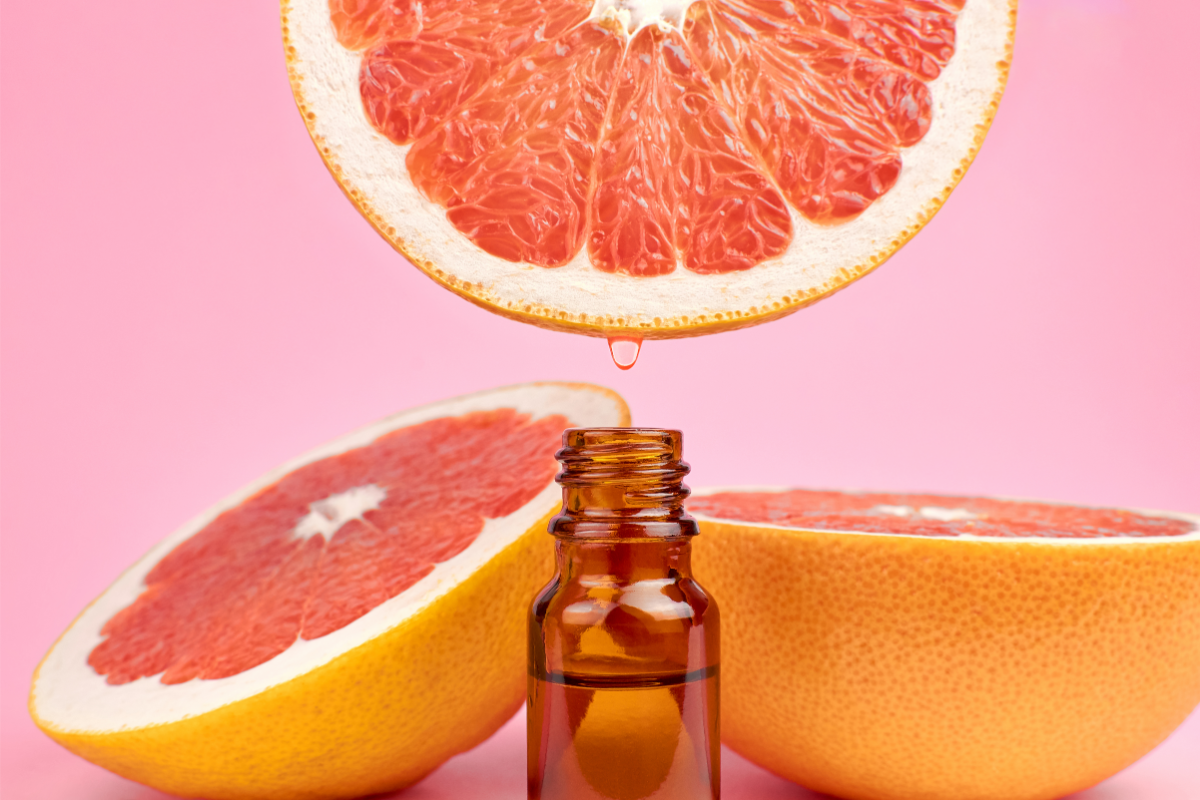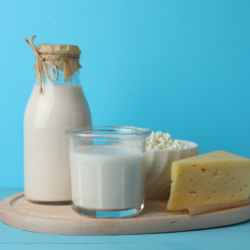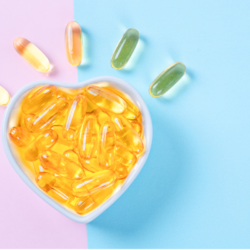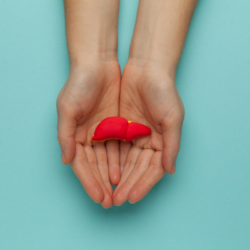A drug interaction occurs when one or more effects of a drug are modified by another product. This interaction can occur with a food (grapefruit juice, liquorice), a drink (coffee or alcohol), a dietary supplement (the case of St John’s wort and turmeric) or smoking. In this article, we explore the different types of effects that these products can have on the activity of a drug and how to avoid the potential dangers associated with these interactions.
The different types of drug interactions
Many drug interactions are related to the effects of one drug on another, but there are foods, drinks, food supplements and herbal products that can cause interactions with drugs.
Decreasing the action of the drug
A product can interfere with the absorption of a drug, its action in the body or increase its elimination. For example, green tea prevents the correct absorption of iron from a medicine such as Tardyferon or an iron-rich food supplement. For this reason, it is recommended that iron or magnesium supplements be taken at a distance from green tea infusions. It also alters the absorption of magnesium in the digestive tract.
Increasing the action of the drug
A product can prevent a drug from being broken down by the body or eliminated, thus increasing the risk of overdose and toxicity. For example, turmeric may increase the action of oral anti-diabetic drugs and cause a risk of hypoglycaemia.
Increased adverse drug reactions
Some foods may increase the adverse effects of a drug. For example, smoking increases the excitatory effect of caffeine in some drugs, especially those used to treat migraine. This interaction is responsible for increasing side effects such as tachycardia, nausea and insomnia.
Specific interactions with common products
Not all interactions between drugs and everyday products can be known and are sometimes difficult to predict. However, when they are known, they are clearly indicated in the package leaflet of the medicines concerned.
Alcohol and medicines
Alcohol consumption should be avoided with medicines that reduce alertness, such as sleeping pills, analgesics, antidepressants, anti-allergics, as well as with non-steroidal anti-inflammatory drugs(diclofenac, ibuprofen) andaspirin to avoid heartburn and gastro-oesophageal acid reflux.
Alcohol thus alters many physiological processes in the body and interacts with many medicines. For example, taking alcohol with the antibiotic metronidazole can cause hot flushes, headaches, palpitations, and nausea and vomiting.
Smoking and medication
Tobacco can interact with many medicines due to the presence of various compounds absorbed by the body. Cigarette smoke inhaled by smokers contains on average 95% gases (carbon monoxide, benzene, ammonia, etc.) and 5% particles (nicotine, heavy metals, hydrocarbons, tars, etc.). The complex interactions between cigarette smoke and the enzymatic activity responsible for the metabolism of drugs can lead to undesirable effects.
- Smoking increases the elimination of theophylline, which is used as an anti-asthma drug, reducing its effectiveness and exposing the risk of asthma attacks. In a smoker whose body is “used to it”, stopping smoking will decrease the elimination of theophylline and cause a risk of toxic accumulation.
- Cigarette smoking reduces the activity of benzodiazepines through the stimulating effect of nicotine on the nervous system.
- Nicotine naturally increases blood pressure and heart rate. If the patient has hypertension, smoking will reduce the action of beta-blockers by reversing some of their effects
- The substances present in tobacco smoke increase the transformation of one of the hormones present in oestroprogestative contraceptive pills,oestradiol, into another product which increases the risk of blood clots forming in the veins (phlebitis) or arteries (e.g. obstruction of a coronary artery responsible for myocardial infarction).
Caffeine and medication
Caffeine consumption should be avoided with certain antibiotics, especially fluoroquinolones, as they decrease the elimination of caffeine and may cause it to accumulate in the body, leading to overdose and toxic effects (heart problems, nausea and hallucinations). Caffeine should also be avoided when taking theophylline for asthma, as these two substances have similar effects, which may increase the adverse effects of the drug.
Grapefruit juice and medication
Grapefruit juice contains an active ingredient that causes many problems in certain treatments. Drug-grapefruit interactions are mainly explained by an inhibition at intestinal level of the cytochrome P450 3A4 enzyme subfamily (~ 50% of drugs are metabolised by CYP 3A4). Two drug families are mainly concerned by this type of interaction:
- Statins (risk of serious long-term muscle damage).
- And certain immunosuppressants such as tacrolimus (risk of renal damage)
Role of diet and lifestyle
The consumption of certain foods (fruit, vegetables, drinks, etc.) can alter the effects of medicines on the body of the person taking them. Like food, orally administered medicines are absorbed through the gastric mucosa or small intestine. Therefore, the presence of food in the gastrointestinal tract can reduce the absorption of a drug. Such interactions can often be avoided by taking the drug 1 hour before or 2 hours after meals.
Tyramine-rich foods and antidepressant treatments
Some antidepressants, such as monoamine oxidase inhibitors (MAOIs), can interact with foods rich in tyramine, an amino acid found naturally in certain foods such as aged cheeses, cold cuts, unfiltered beer and red wine. Eating these foods can cause a dangerous increase in blood pressure in people taking MAOIs. It is therefore important to follow a low tyramine diet when taking these drugs.
Anticoagulant therapy and vitamin K
Patients treated with anti-coagulants (fluindione, acenocoumarol, etc.) are advised to avoid excessive consumption of foods rich in vitamin K (cabbage, broccoli, spinach, parsley, offal, etc.). Indeed, this additional contribution to the body reduces the effectiveness of anticoagulant drugs and increases the risk of thrombosis.
The potential dangers of herbal medicine and drugs
The use of herbal products is nowadays considered as an alternative or complementary medicine, which is very popular all over the world. This use of herbal medicines is called herbal medicine. The aim of herbal medicine is to maintain or improve a person’s health. Phytotherapy refers to the use of medicinal plants in different forms (infusions, decoctions, poultices, macerations, etc.) for preventive, curative or aesthetic purposes. Phytotherapy can therefore refer to food supplements, herbal infusions or the use of fresh or dried medicinal plants.
Support for the use of medicinal plants by the pharmacist
The use of medicinal plants in phytotherapy can also cause drug interactions. They can therefore interact with drugs, and some of them are known to inhibit or induce hepatic cytochromes. Some of the plants involved are Aloe vera plant extracts, ginseng and valerian, among others.
For example, St. John’s wort is known to interact with many drugs, including antidepressants and antiretrovirals, oral contraceptives (birth control pills) and anti-vitamin K oral anticoagulants. It is crucial to talk to an online pharmacist before combining herbs with medicines.
Licorice naturally causes an increase in blood pressure, so patients should be advised against using it when taking anti-hypertensive medication.
Turmeric is a plant whose rhizomes are highly prized. It also has cholesterol-lowering and anti-inflammatory properties. Indeed, it is used to promote the production and secretion of bile (in case of difficult digestion) and to stimulate the appetite. However, taking turmeric products interacts with many drugs, including blood thinners (warfarin, Coumadin®).
Desmodium is known to have hepatoprotective properties (lowering of transaminases). Antispasmodic activity has also been observed to combat asthma attacks and muscle spasms. Care must be taken with this plant as it is also a CYP2E inhibitor. Although no interaction between desmodium and a specific drug has ever been reported in the scientific press, it is recommended to avoid concomitant medication.
Food supplements and medicines
Food supplements are foodstuffs that are intended to supplement a normal diet and are a concentrated source of nutrients or other substances with a nutritional or physiological effect. They contain vitamins, minerals, flavourings or amino acids. Supplements are regulated as foods, not as medicines, so they are not tested as thoroughly. However, they can interact with prescription and over-the-counter medicines.
The French National Agency for Food, Environmental and Occupational Health Safety (Anses) carried out an Inca 3 study in 2014-2015, about the evolution of French dietary behaviour. The results of this study showed a doubling of the consumption of food supplements and nutrient medicines by the population, compared to the previous Inca 2 study (2006-2007) conducted by the Anses.
According to theInca 3 study, 22% of adults and 14% of children consume food supplements. Among adults, the highest consumers are women, individuals aged 18 to 44 and those with a high level of education.
Food supplements can interact with medicines in different ways. For example, some supplements may increase the effect of medicines, while others may decrease their effectiveness. It is essential to consult a health professional before starting to take a dietary supplement if you are already taking medication.
It is therefore essential to take into account all these potential interactions to avoid the risk of adverse effects or reduced effectiveness of drug treatments. Therefore, to ensure optimal medical care, it is recommended that you always inform your doctor or pharmacist of your current treatments and consumption habits, particularly with regard to food, drinks and herbal products.
Precautions to take to avoid drug interactions
- Read the package insert carefully: Drug package inserts usually contain information about possible interactions with other medicines, foods or drinks. It is therefore important to read them carefully to avoid any risk.
- Inform your doctor or pharmacist: When prescribing a new medicine, it is essential to inform your doctor of all other treatments you are taking, including food supplements and herbal products. Similarly, when buying a non-prescription medicine, it is important to talk to your pharmacist to check that there are no interactions with your current treatments.
- Eat a balanced diet: A balanced and varied diet is good for your health and can help reduce the risk of drug interactions. For example, avoid excessive consumption of vitamin K-rich foods when taking anticoagulants, or limit caffeine consumption when taking fluoroquinolone antibiotics.
- Avoid alcohol and tobacco consumption: Alcohol and tobacco can interact with many drugs and increase the risk of adverse effects. It is therefore recommended to limit or even avoid their consumption when taking medication.
- Respecting dosages and schedules: To optimise the effectiveness of medicines and limit the risks of interactions, it is important to respect the dosages and schedules recommended by the doctor or indicated on the package insert.
In conclusion, drug interactions are an important issue and can have serious health consequences. It is essential to be aware of potential interactions between drugs, food, drinks, food supplements and herbal medicines, and to consult a health professional to avoid risks. By being informed and vigilant, you can help ensure the safety and effectiveness of your medication.







